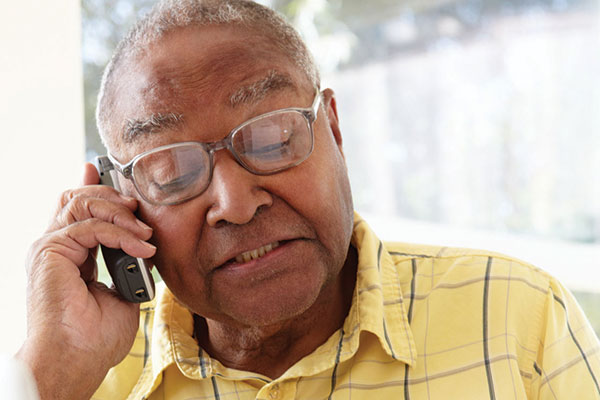Do You Know Your Healthcare Rights?
5 Legal Tips for Cancer Survivors
by Stephanie Fajuri, Esq
As a cancer survivor, it’s important to know your legal rights so you can advocate for yourself, before legal issues become a problem. Don’t wait until an issue arises to learn your legal rights. Here are the top five most common legal issues faced by cancer survivors, plus tips on how to deal with them.
1. Insurance Coverage
It is your responsibility to understand your health insurance coverage. Too often, we assume that the doctors and nurses treating us understand our insurance coverage, and that they know better than to suggest treatments that aren’t covered or that we can’t afford. Unfortunately, this is not always the case. To save yourself frustration – and, possibly, significant medical debt – down the road, it’s important for you to take the initiative to learn as much about your insurance coverage as you can so you’re not left with unexpected bills.
For starters, thoroughly review your summary plan description or evidence of coverage booklet, both of which are usually available online. If you have questions about your plan, call your insurance company, and take detailed notes about what the customer service representative tells you. And if it’s too much to handle on your own at the moment, ask a trusted friend or family member to help you. Insurance can be confusing, but knowing what’s covered can help you plan accordingly.
2. Workplace Accommodations
If cancer and the effects of treatment are making certain aspects of your job more difficult, you might be entitled to something called a reasonable accommodation. The Americans with Disabilities Act protects workers with disabilities from discrimination at companies with at least 15 employees, and people with cancer are usually considered “disabled’ under the ADA. If you work for a smaller employer, check to see if your state’s fair employment law covers you. Not only are employers who are bound by these laws prohibited from discriminating against you if you have cancer, but they also might have to make changes to the work environment that help you to keep doing your job, as long as the changes you request aren’t too expensive or too difficult for your employer to make.
You need to ask for workplace accommodations before your work performance is affected.
For example, changing your work schedule so you can go to doctors’ appointments or chemo treatments, allowing you to work from home, or even adjusting the office temperature might be considered a reasonable accommodation, depending on your job. Keep in mind that you need to ask for workplace accommodations before your work performance is affected. If you start showing up to work late, missing work, or missing deadlines, your employer might be allowed to write you up or even fire you if they were not aware of your need for an accommodation.
3. Time Off from Work
You don’t have to quit your job just because you have cancer. The Family and Medical Leave Act provides up to 12 weeks of unpaid job- and health benefit-protected leave for eligible employees.
If you have worked for your employer for at least a year, you’ve worked 1250 hours in the last year, and your employer has at least 50 employees within a 75-mile radius of where you work, you might be able to take FMLA leave for yourself if you are sick, or if you’re a caregiver for your spouse, parent, or child who is. Under FMLA, you can take the 12 weeks all at once, or in smaller increments. So, whether you are having surgery with a long recovery or only need one day off per week for treatment, you may be able to use FMLA leave.
If you don’t qualify for FMLA, you might still be able to take time off as a reasonable accommodation under the Americans with Disabilities Act (see tip 2 above). It’s also a good idea to check your employee manual or talk with Human Resources about medical leave, since some larger employers provide even more time off than the law requires.
4. Debt
Cancer treatment is expensive, even if you have great insurance coverage. Since you might not be able to prevent taking on some debt, prioritizing which debts you pay first can help improve your quality of life.
There are two main types of debt: secured and unsecured. Secured debt is a debt that is tied to a piece of property (like a home or a car), called collateral, which means that if you don’t pay the debt, that property can be repossessed. Unsecured debt is not linked to collateral. If you don’t pay an unsecured debt, the company or person you owe cannot get anything from you unless they get a judgment against you in court. Examples of unsecured debts are credit cards, medical bills, and student loans.
Sometimes it can be a good idea to prioritize paying for necessary expenses over unsecured debts. For example, if you need your car to get to and from treatment, you will need to keep making your car payment so it doesn’t get repossessed. Also, a landlord or bank can start eviction or foreclosure proceedings if you don’t pay your rent or mortgage, even if you have cancer. Since having a place to live is essential, you might want to prioritize paying your rent or mortgage instead of making your credit card payment.
5. Denial of Coverage
When it comes to getting insurance coverage for a treatment you need, don’t take no for an answer. If your health insurance company denies coverage of a certain service or treatment, you should likely appeal the decision. First, you usually have to appeal directly to your insurance company to get them to reconsider their decision. If they still say no, most people with private health insurance now have access to an external insurance appeals process, sometimes called an Independent Medical Review, thanks to the Affordable Care Act. An external appeal is where an independent third party reviews your request to see whether the insurance company was right in denying you coverage.
Additionally, most people are denied Social Security Disability benefits the first time they apply. If you apply for Social Security Disability Insurance or Supplemental Security Income because you are disabled and no longer able to work, and you are denied benefits, you have a better chance of getting approved and receiving back-pay you might be entitled to if you appeal, rather than submit a new application. You usually don’t need a lawyer for the first Social Security appeal, but it can be helpful to hire a lawyer if you reach the second level of appeals and are scheduled for a hearing.

Stephanie Fajuri is the supervising attorney at the Cancer Legal Resource Center, a national program of the Disability Rights Legal Center in Los Angeles, CA.
Learning your rights and how to enforce them can help prevent legal problems down the road. The Cancer Legal Resource Center empowers survivors to learn their legal rights so they can advocate for themselves, before legal issues become a problem. The CLRC provides free education and resources on cancer-related legal questions to cancer survivors, caregivers, and healthcare professionals. For more tips or answers to your cancer-related legal questions, contact the CLRC at (866) 843-2572 or visit CancerLegalResources.org.
Disclaimer: Through this article, the author is not engaged in rendering any legal or professional services by its publication or distribution. It is not intended to be legal advice or to establish an attorney-client relationship.
This article was published in Coping® with Cancer magazine, November/December 2016.


